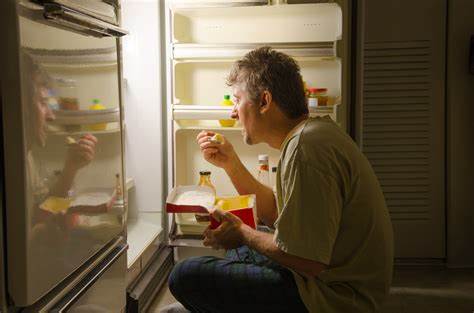Here at Herculean Strength we’re constantly extolling the virtues of getting enough sleep, and a new study that links reduced levels of sleep to increased body fat is yet further proof you should be taking your sleep seriously.
Researchers from the Mayo Clinic discovered that a lack of sleep is linked to eating more during the day. This in turn leads to increased accumulation of visceral fat, a deeper form of fat that has been linked to various health problems, including heart and kidney problems.

Sleep and body fat: new study
The researchers examine the sleep and eating patterns of 12 people who were not obese. The participants had four days to adjust to the study environment, before the study began.
For the following two weeks, one group were placed in a restricted sleep schedule, as part of which they slept for four hours a night, while the other group slept for nine. Each group had the same access to food throughout the study.
The researchers observed that people who slept less were more likely to eat more in the early days of sleep deprivation. People sleeping less than four hours a night ate an extra 300 calories compared to when they first started and slept for nine hours. Each person ate approximately 13 percent more protein and 17 percent more fat.
“The visceral fat accumulation was only detected by CT scan and would otherwise have been missed, especially since the increase in weight was quite modest — only about a pound,” says one of the principal researchers.
“Measures of weight alone would be falsely reassuring in terms of the health consequences of inadequate sleep. Also concerning are the potential effects of repeated periods of inadequate sleep in terms of progressive and cumulative increases in visceral fat over several years.”
Even a small amount of ambient light can disturb your sleep, harm heart function and increase insulin resistance the next day
A new study out of Northwestern University has shown that exposure to even a small amount of ambient light at night can disturb your sleep, as well as harming cardiovascular function and increasing insulin resistance the next day.
“The results from this study demonstrate that just a single night of exposure to moderate room lighting during sleep can impair glucose and cardiovascular regulation, which are risk factors for heart disease, diabetes and metabolic syndrome,” said senior study author Dr. Phyllis Zee, chief of sleep medicine at Northwestern University Feinberg School of Medicine.
“It’s important for people to avoid or minimize the amount of light exposure during sleep.
Click here to read more about this shocking study
Researchers found that even when you try to catch up on your sleep, like oversleeping on the weekends, there was a decrease in weight but not in visceral fat.
“This suggests that inadequate sleep is a previously unrecognized trigger for visceral fat deposition, and that catch-up sleep, at least in the short term, does not reverse the visceral fat accumulation. In the long term, these findings implicate inadequate sleep as a contributor to the epidemics of obesity, cardiovascular and metabolic diseases,” explained another of the principal researchers.


Don’t hesitate to email us at [email protected] for personalized coaching and a client questionnaire if you’d like DEDICATED tailor-made personal training on strength training, building muscle, losing fat, developing athleticism, and more — all to your liking, lifestyle, habits, and taste!
Otherwise, don’t forget to claim your FREE eBook detailing how to lose 20lb of fat while building muscle in 12 weeks! You can claim it here.
Alternatively, you can pick up a FREE eBook on fundamental strength principles offering an introductory workout program.











